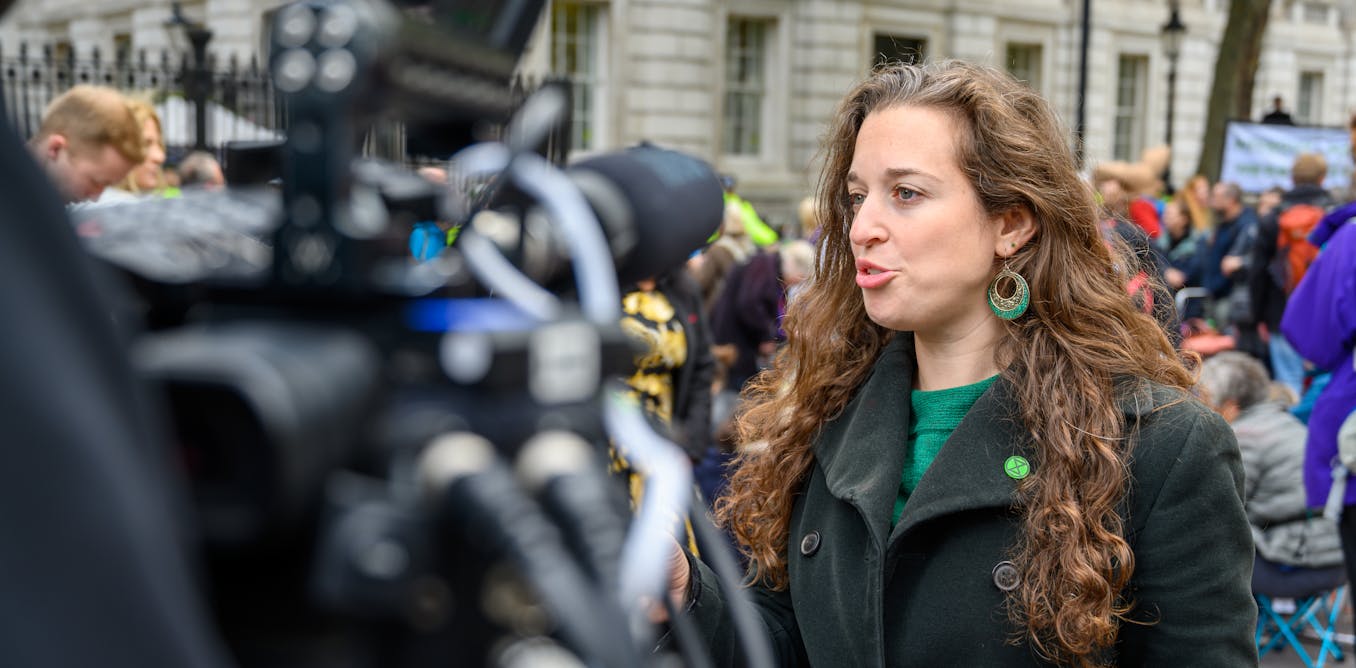Are women climate scientists judged for speaking out? Not so much, research suggests
A new study reveals how female climate scientists are perceived by their peers during media interviews.
Aug. 2, 2021 • 6 min • Source
Many scientists are likely to be invited for media appearances in the run up to COP26, the international negotiations on global heating that will take place in Glasgow in November 2021. Journalists will ask climate scientists to help place the talks in context and to discuss the value of particular options for reducing emissions, or to explain how climate change may have contributed to particular weather events. Given the exposure these opportunities afford, it’s no surprise that some climate scientists take the chance to lend their support to particular measures.
While there is some debate over how effective it is for scientists to act as advocates, many consider it a moral obligation to discuss possible solutions to climate change, even if it goes beyond their direct expertise. Still, lots of scientists who are convinced of the importance of advocacy often refrain from it, fearing the harm it could cause their professional reputation.
In a new study, published in the journal Public Understanding of Science , myself and fellow researcher Lauren Armstrong were the first to examine how climate scientists are perceived by other scientists when speaking in favour of particular policies in the media. What we found suggests women scientists may have less to fear from their peers than they might think.
Advocacy involves making subjective judgements about how the world should be. That subjectivity can be accentuated by dramatic, narrative-based writing when it’s reported in the media. This would seem opposed to the disinterested objectivity of science.
Reputational fears can be particularly discouraging for women scientists. They face well-documented barriers in science, including lower pay , fewer citations and lower funding success . Women are more likely to be stereotyped as emotional, which some seem to consider contrary to the spirit of scientific endeavour.
Wanting to avoid being considered unscientific by peers could prevent female climate scientists from giving media statements , particularly ones in which they are urged to advocate for action. The lack of publicly visible women scientists has been linked to the lower number of women who enter the profession, and it reduces the number of female messengers on an issue that disproportionately affects women globally .
Gender bias in science
We sent environmental scientists in UK universities a fictitious media statement that ostensibly responded to the 2016 Climate Action Summit, a two-day meeting hosted by the UN and held in Washington DC. The statement reported a number of existing and projected effects of climate change and advocated for “strong policies and strong action from government”.
Each statement was attributed to either Daniel, Matthew, Rebecca or Helen Thompson. Participants were asked to read the statement and rate the scientist who wrote it on 23 attributes, including those stereotypically associated with women (such as emotive and caring), men (competitive and decisive), science (objective and impartial) and the media (dramatic and biased).
Across 19 of the attributes, there was little or no evidence of a gender difference. When treating the participants as a single population of men and women, there were no significant differences between the male and female scientists for any attributes.
Male participants did rate the female scientists as significantly more dramatic and biased than their female counterparts, however. This trend is in line with previous studies. For example, research in management science has found that female leaders are typically perceived by their male colleagues as more dramatic, and more prone to making judgements based on their emotions.

But the analysis didn’t reveal whether male scientists were rating their female peers as more dramatic and biased than their male peers, or if female scientists were giving higher ratings to their female peers. The latter outcome would also be in line with previous studies , which suggest female scientists tend to associate female peers with the objective, rational traits commonly associated with both science and masculinity.
That means that, with the exception of some minor differences between male and female participants, there’s reason to believe that advocacy in the media won’t significantly harm women climate scientists’ standing among their peers based on their gender. This is a significant finding for climate science communication, and for climate politics more broadly.
To more thoroughly understand the experiences of women scientists, it would be useful to learn how these perceptions translate into behaviour. Nevertheless, encouraging female scientists to take on more visible roles, without fear of gender-based repercussions, could bring more women into climate science and help make people more aware of the science of climate change.
George Adamson conducted this research with Lauren Armstrong, a former student on the MSc Climate Change: Environment, Science and Policy course at King’s College London.


